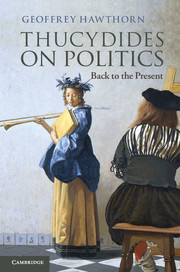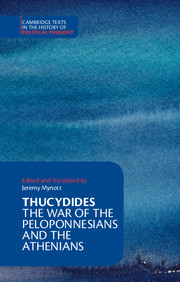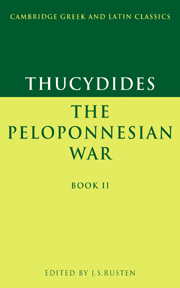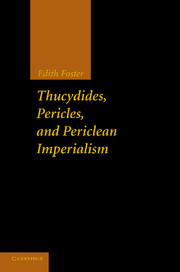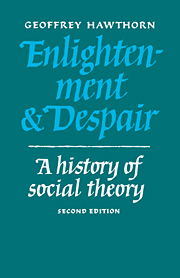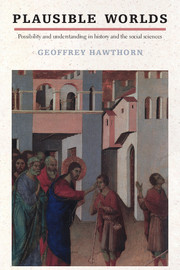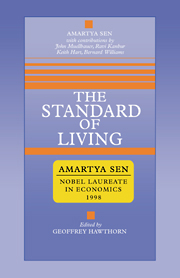Thucydides on Politics
Thucydides famously declared his work to be 'a possession for all time', and so it has proved to be, as each age and generation has seen new things to admire in it and take from it. In the last hundred years, Thucydides has been interpreted and invoked in support of many different positions in politics, political theory and international relations. Geoffrey Hawthorn offers a new and highly original reading, one that sees him as neither simply an ancestor nor a colleague but as an unsurpassed guide to a deeper realism about politics. In this account, Thucydides emerges as sensitive to the non-rational and the limits of human agency, sceptical about political speech, resistant to easy generalisations or theoretical reductions, and opposed to any practical, moral or constitutional closure in politics. The book will be of interest to students of politics and classics.
- Proposes a new reading of Thucydides' understanding of practical politics
- Presupposes no previous knowledge of Thucydides and is written in an open and accessible style
- Challenges existing interpretations of the politics of Thucydides' time
Reviews & endorsements
'Hawthorn acts as a careful, humane guide through Thucydides' account of the Peloponnesian War, sympathetically exploring the importance of Thucydides' historical and political thought, but equally committed to resisting the temptation to reduce this endlessly complex work to any single or simple meaning or message (whether for antiquity or for the contemporary world). Historians, students of politics, and anyone who simply wants better to understand this fascinating text will gain much from this clear-headed, thought-provoking study.' Polly Low, University of Manchester
'In a wholly individual voice, Geoffrey Hawthorn reflects on the complex of insight and suggestive ambiguity that is Thucydides' masterwork. Like Thucydides before him, Hawthorn offers by turns confident judgments and studies in contingency. For many years, Hawthorn provided a fortunate group of students at Cambridge a sense of Thucydides' distinctive subtlety and penetration about politics, a sense he here makes available to readers more generally.' Kinch Hoekstra, University of California, Berkeley
'A fascinating and thought-provoking reading of Thucydides and his ideas, thoroughly grounded in classical scholarship but viewed through a lifetime's experience of reflection on political issues. As Hawthorn himself says of Thucydides, one's understanding expands in the course of reading the work. Indispensable for classicists and political theorists alike.' Neville Morley, University of Bristol
'This magnificent book on the history of the most célèbre of all wars makes us love Thucydides' poetic passion for his subject and the 'purity' of his style. Politics is the protagonist of Geoffrey Hawthorn's narrative: Thucydides' vision of politics as a panoply of propelling forces, the reasons and accounts people give of them, their analysis, reflection, calculation and debate; and politics as a way of making things happen that is more likely than not to be agonistic and is unlikely to be truthful or simply reasonable in one straightforward way.' Nadia Urbinati, Columbia University
'Thucydides on Politics is the most original and thought-provoking book on Thucydides to appear in the past fifteen years. For boldness and clarity of argument, it cannot be too highly recommended.' Peter Thonemann, The Times Literary Supplement
'… sets out to be Thucydides' Thucydides: tracing the historian's narrative, probing, judging, guessing, arguing with other scholars and with Thucydides himself, always illuminating. Like his philosophic mentor, Bernard Williams, Hawthorn displays a resolutely English intelligence, venturing no grand theories but bringing out defensible arguments from sensible consideration of details mastered. The result is that rare textual commentary that is actually readable, teaching readers how better to think about war and politics in and among communities that seek, somehow, to rule themselves. Summing up: highly recommended.' W. Morrisey, Choice
'One of the 'connoisseurs of the political game', a scholar of uncommon insight and long experience, and a writer who possessed an exceptionally eloquent prose style … Hawthorn deserves to be heard, and not only by classicists.' James Romm, London Review of Books
Product details
March 2014Paperback
9781107612006
294 pages
229 × 152 × 16 mm
0.44kg
4 maps
Available
Table of Contents
- Preface
- Chronology
- 1. The text
- 2. Writing power: Athens in Greece, 478–435
- 3. Explaining the war: stated reasons, 435–432
- 4. Explaining the war: true reasons, 435–432
- 5. Judgements, 431–430
- 6. Absent strategies, 430–428
- 7. Speech and other events, 428–427
- 8. Meaning and opportunity, 426–424
- 9. Necessities, 424
- 10. Interests, 423–421
- 11. Emotion in deed, 420–416
- 12. Purposes and decisions, 415
- 13. Character and circumstance, 414–413
- 14. One war, 413–411
- 15. Back to the present
- Synopsis of the text.

